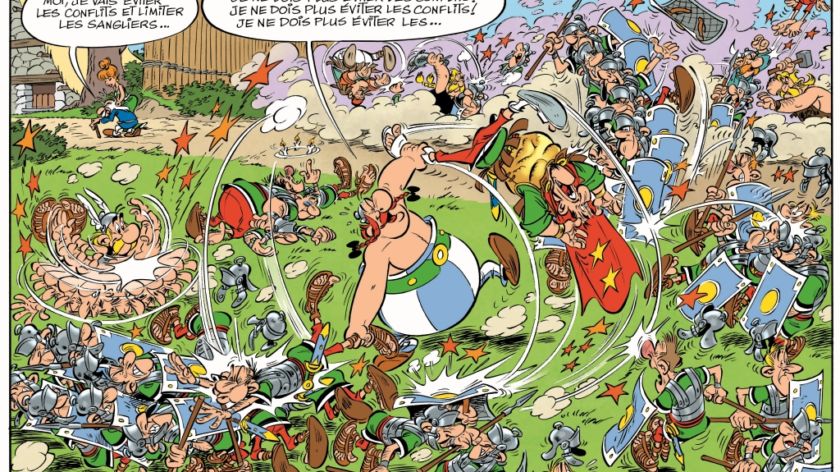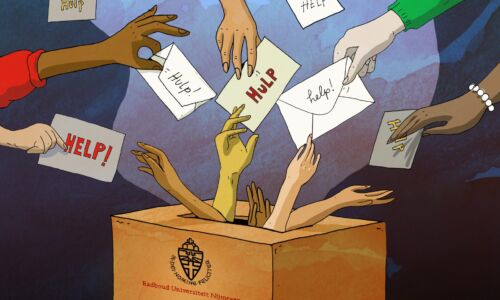Mathematics keeps English at bay (for now)
It might remind you of the feisty Gauls, flatly refusing to surrender to the Roman conquest. Mathematicians are keeping English-language education at bay with much of the same persistence. The question is for how long that will be possible.
The faculty plan of just three years ago stipulated that all science programmes at Radboud University would be English-language by 2020. That has largely been successful. Chemistry, biology, computing science and molecular life sciences are all English-language. Physics and astronomy are almost there. But mathematics prefers not to have English as the working language.
‘We’re doing very well. We are in the lead, year after year’
The way the mathematicians see it, the programme is working just fine as it is. Last autumn, for the sixth time in seven years, the Nijmegen programme received the distinction ’top programme’ in the Keuzegids Universiteiten (Universities Selection Listings). All the more reason to put your faith in the programme and let it decide its own course, says Arne Smeets, university lecturer in mathematics. ‘We’re doing very well. We are in the lead, year after year, so I don’t expect any orders from above telling us to change direction. And anyway, an English-language programme could lead to new capacity problems: our student numbers are increasing, and one hundred first-year students is absolutely the most we can cope with. It’s no secret that Mathematics has been understaffed for years.’
Introducing English-language lectures is not self-evident, in particular in the case of mathematics, says Smeets, since mathematics is in itself already a new language. He points to a pile of books on his desk. ‘For most people, the content of these books is a kind of Chinese. When you study mathematics, you have to therefore learn to speak and write a new language. That is a difficult and time-consuming process. To have to do it in English would only make things more complicated for students.’
No hurry
‘We are not about to make strict demands of our programmes. If there’s no support for a proposal, we simply don’t do it’, says Floris Rutjes of the faculty board. ‘The question is whether it’s desirable to leave a small programme the only Dutch-language one in a faculty.’ It helps that the present Executive Board, in contrast to former chairman of the board, Gerard Meijer, is more reserved about the introduction of English-language programmes.
Rutjes: ‘There has been a change of direction in the board. As a result, we feel less pressure to hurry the process of anglicising our programmes.’ However, he adds, the fact remains that the new science staff members of the mathematics programme are mainly foreigners. ‘And obviously, you want to be able to involve them as lecturers in the programme. So, I expect that the support for English in mathematics will increase of its own accord.’




